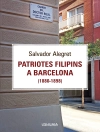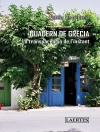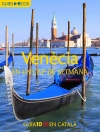In the last twenty-five years, the explosive rise of car mobility has transformed street life in postsocialist cities. Whereas previously the social fabric of these cities ran on socialist modes of mobility, they are now overtaken by a culture of privately owned cars. If Cars Could Walk uses ethnographic cases studies documenting these changes in terms of street interaction, vehicles used, and the parameters of speed, maneuverability, and cultural and symbolic values. The altered reality of people’s movements, replacing public transport, bicycles and other former ‘socialist’ modes of mobility with privatized mobility reflect an evolving political and cultural imagination, which in turn shapes their current political reality.
สารบัญ
Introduction
Ger Duijzings and Tauri Tuvikene
Chapter 1. Seven Imaginary Images of the Transition of GDR Streets, 1989–1995
Kurt Möser
Chapter 2. Liberated or Lawless? Social Life on Prishtina’s Postwar Streets
Rita Gagica and Ger Duijzings
Chapter 3. ‘Changing Everything Fast’? Young Men in the Streets of Tbilisi
Costanza Curro
Chapter 4. Coproducing the Car and the Stratified Street: Automobility and Space in Russia
Jeremy Morris
Chapter 5. Bucharest’s Centura: Encircling a City in Transformation
Ger Duijzings
Chapter 6. Pedestrianizing Moscow: Disparities Between the Centre and the Inner Periphery
Sabina Maslova and Tauri Tuvikene
Chapter 7. Between Non-place and Public Space: Life at a Postsocialist (Trolley)Bus Stop
Andrey Vozyanov
Chapter 8. Where the Streets Have No Name: Toponymic Changes, Wayfinding and Tashkent’s System of Orientiry
Nikolaos Olma
Chapter 9. No Future Without a Motorway Exit: Roadside Communities in Postsocialist Poland – the case of Torzym
Agata Stanisz
Conclusion
Ger Duijzings and Tauri Tuvikene
Postscripts
No Alternative to the Car; Or: What Remained of Socialism after 1989/91?
Luminita Gatejel
Periodization, Postsocialism and the Directionally Challenged
Joshua Hotaka Roth
‘Where is the Postsocialism Here?’
Peter Norton
เกี่ยวกับผู้แต่ง
Tauri Tuvikene is Professor of Urban Studies at the School of Humanities, Tallinn University. His research covers the intersection of urban cultures, mobilities, cities, and policies. He has published widely on these topics in various journals, as well as co-edited Post-Socialist Urban Infrastructures (Routledge, 2019) with Wladimir Sgibnev and Carola S. Neugebauer. He was Project Leader for a HERA-funded project on public transport as public space (2019-2022).












